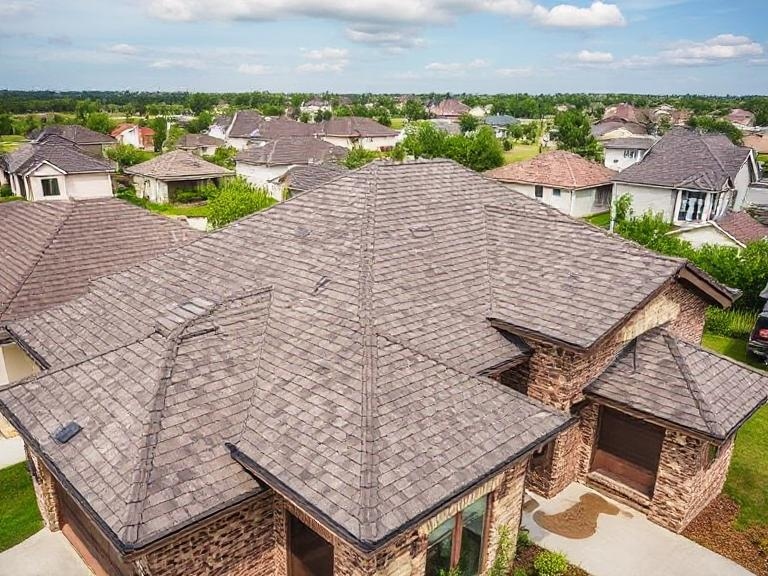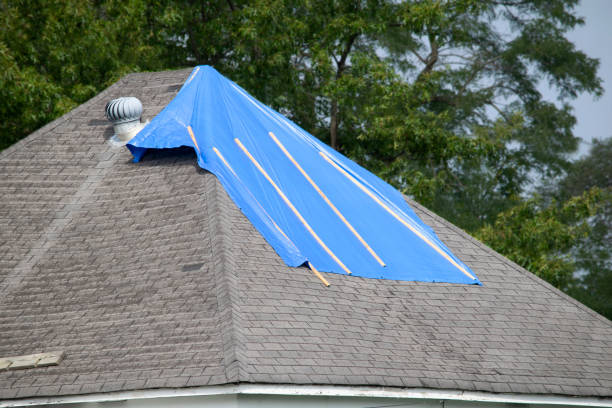How Much Should You Pay A Roofing Contractor Up Front?
Introduction
When it comes to home improvement, roofing is often one of the most significant investments a homeowner can make. Whether you're building a new home or replacing an aging roof, understanding the costs associated with roofing can be daunting. This article aims to demystify roofing costs, offering insights into what you can expect and how much you should pay upfront. By the end, you'll be equipped with the knowledge necessary to navigate this essential aspect of homeownership confidently.
Roofing Costs Demystified: What to Expect and How Much to Pay Up Front
Understanding roofing costs involves various factors, including materials, labor, location, and the type of roof being installed. Homeowners often find themselves asking: "What exactly goes into the cost of a new roof?" Let's break down these components.
1. Types of Roofing Materials
1.1 Asphalt Shingles
Asphalt shingles are undoubtedly the most popular roofing material in North America. They are cost-effective and relatively easy to install. The average cost for asphalt shingle roofing ranges from $90 to $100 per square (100 square feet).
Pros:
- Affordable
- Easy installation
- Variety of styles
Cons:
- Shorter lifespan compared to other materials (15-30 years)
1.2 Metal Roofing
Metal roofs have gained popularity due to their durability and energy efficiency. They typically cost between $120 and $900 per square, depending on the type of metal used.
Pros:
- Long lifespan (40-70 years)
- Energy-efficient
- Environmentally friendly options available
Cons:
- Higher initial costs
1.3 Tile Roofing
Tile roofs provide a unique aesthetic but come at a premium price range—typically between $600 and $800 per square.
Pros:
- Extremely durable (50+ years)
- Excellent insulation properties
Cons:
- Heavy; may require additional structural support
2. Labor Costs Associated with Roofing
Labor costs can significantly impact your overall roofing budget. On average, labor accounts for about 60% of the total roofing project cost.
2.1 Average Labor Rates
Labor rates vary by region but generally range from $50 to $150 per hour for roofing contractors. Some contractors may charge per square foot instead.
2.2 Factors Influencing Labor Costs
Several factors can influence labor costs:
- Geographic location
- Roof complexity
- Weather conditions
3. Additional Factors Affecting Roofing Costs
Understanding the additional factors that contribute to your overall expenses will help you prepare financially.
3.1 Roof Size and Pitch
The size and pitch (slope) of your roof significantly affect material and labor costs. A steeper pitch may require specialized equipment or safety measures, increasing labor time.
Example Table: Cost by Roof Size
| Roof Size (sq ft) | Average Cost ($) | |--------------------|------------------| | 1,000 | 3,000 - 5,500 | | 2,000 | 6,000 - 12,000 | | 3,000 | 10,000 - 20,000 |
3.2 Existing Roof Condition
If your existing roof has damage or requires removal before installation begins, this will add to costs as well.
4. Choosing a Roofing Contractor
Selecting the right contractor plays a crucial role in ensuring quality workmanship while managing costs effectively.

4.1 What to Look For in a Roofing Contractor?
When choosing a roofing contractor:
- Check credentials and insurance.
- Read reviews.
- Obtain multiple estimates.
4.2 Questions To Ask Your Contractor?
Before hiring a contractor for your roofing project:
5. Financing Options for Your New Roof
Sometimes homeowners aren't prepared for upfront expenses related to new roofs; hence financing becomes necessary.
5.1 Home Equity Loans vs Personal Loans
A home equity loan allows you to borrow against your home's equity while personal loans may offer lower interest rates but less borrowing power.
6. Preparing for Your Roofing Project
Preparation is key when planning your roofing project; here's what you need to know!
6.1 Getting Permits and Inspections
Most municipalities require permits before any major work such as re-roofing begins; failure could result in fines or issues when selling your home in the future.
7. Understanding Warranty Terms on Your Roof Installation
It's essential not only for peace of mind but also for financial planning.
7.1 Types of Warranties Available
Most roofs come with two types of warranties:
Material Warranty: Covers defects in materials.
Workmanship Warranty: Covers installation errors.
8. Seasonal Considerations for Roofing Projects
Timing can affect both pricing and efficiency when it comes time for installation.
8.1 Best Seasons for Roof Installation
Spring and fall are ideal seasons due mainly to milder weather conditions that allow contractors flexibility without delays caused by extreme weather conditions.
FAQs
Q1: How much does a new roof typically cost?
A1: The average cost ranges from $5,000-$15,000 depending on size and material chosen.
Q2: How long does it take to replace a roof?
A2: Most residential roofs can be replaced within one week unless complications arise.
scr247.com
Q3: Will my homeowners' insurance cover roof replacement?
A3: Often yes; however always check with your provider regarding specific coverage details related specifically toward wear-and-tear versus storm damage claims.
Q4: Do I need permits for roofing work?
A4: Yes! Always check local regulations since many areas require permits before replacement begins!

Q5: What payment options do most contractors accept?

Q6: Can I install my own roof?
A6:** Technically yes if experienced but we recommend hiring professionals given safety risks involved plus potential costly mistakes if done improperly!
Conclusion
Understanding "Roofing Costs Demystified: What to Expect and How Much to Pay Up Front" equips homeowners with essential knowledge required when embarking on such an important investment journey! By considering different materials available alongside labor rates before hiring qualified professionals—homeowners can ensure an effective yet affordable solution tailored specifically toward their needs! So don't hesitate—get started today by gathering estimates from local contractors while keeping all these considerations top-of-mind throughout this process!